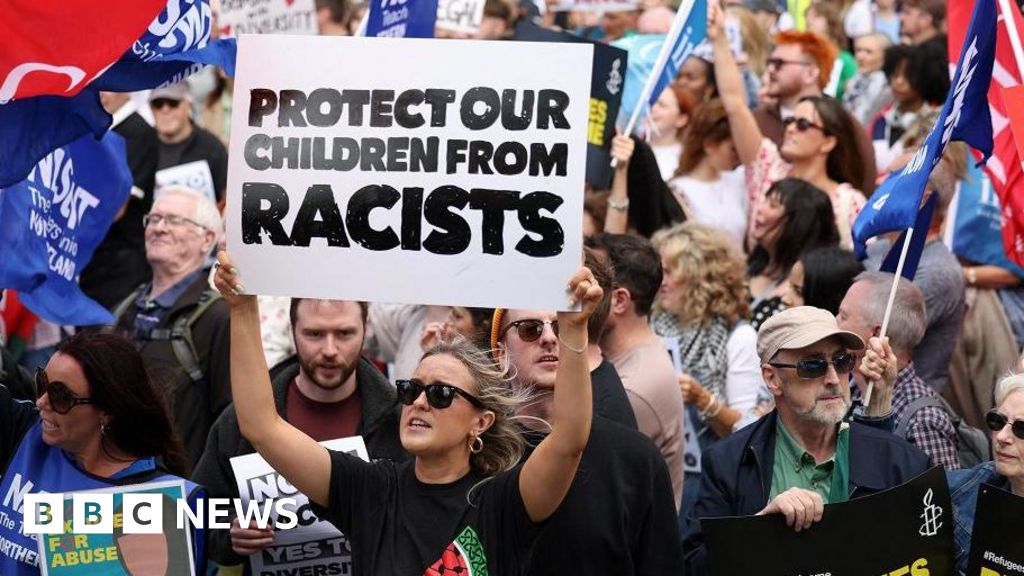The United Nations has urged the UK to take action to curb racist hate speech, including by politicians, in a report published on Friday.
The UN said it was “particularly concerned” about racist acts and violence by “far-right and white supremacist” groups, such as during recent riots across England and Northern Ireland fuelled by misinformation and anti-immigrant sentiment.
The call for action was part of a four-year review of the UK’s record on tackling racial discrimination – a requirement for countries signed on to international conventions.
The review also urged the UK to address alleged racial profiling by police and discrimination in criminal justice, housing, schools and healthcare.
The BBC has reached out to the Minister for Women and Equalities for comment.
The UN Committee on the Elimination of Racial Discrimination said it was especially concerned by the persistence and in some cases “sharp increase” of hate crimes and hate speech in the UK.
The committee highlighted what they said were recurring racist acts and violence against minorities, asylum seekers and refugees, including during riots in late July and early August.
The UN characterised authorities as having taken “swift action” in response.
At least 466 people have been charged with crimes related to the riots, some of which targeted mosques and hotels housing asylum seekers.
Prime Minister Keir Starmer at the time said the riots were the “actions of a tiny, mindless minority” and condemned “far-right hatred”.
The UN recommended that the UK prevent racist hate crimes by encouraging reporting to police, prosecuting perpetrators, and strengthening measures to combat hate speech on social media, among other measures.
Much of the evidence considered by the committee would have been collected before the general election and the riots.
The UN said the UK had taken some steps in recent years to improve, noting that Scotland brought in a hate crime strategy and Wales introduced an action plan to eliminate anti-racism.
However, the global body remained concerned about the level of hate crimes and xenophobic speech targeting ethnic minorities, specifically Gypsies, Roma, Travellers, people of African, Asian or Arab descent, Jews, Muslims and Hindus, as well as migrants, refugees and asylum seekers.
Concerns included racist hate speech published by mainstream media, on social media, and spread by politicians and public figures.
The report did not single out specific politicians or instances, but urged public authorities and high-level officials to “formally and publicly reject and condemn hate speech and the dissemination of racist ideas”.
It also urged the UK to hold journalists and news organisations accountable for how they describe minority communities and when they publish content that incites hatred or fuels xenophobic attitudes.
The review also urged the UK to improve the situation for migrants and refugees and tackle racial discrimination in other areas such as policing.
Improvements were needed across the criminal justice system for people to feel safe enough to report racist incidents and stamp out the continued problem of racial profiling, the UN said.
The global body said it was particularly concerned about the high number of strip searches of children, especially of African descent, and the increased presence of police at schools with large non-white populations.
The report called for an independent body to investigate allegations of racial profiling by police, saying stop and search had a disproportionate impact on ethnic minorities, particularly young men and children of African and Asian descent.
The UN said ethnic minorities still suffered discrimination across a broad range of areas, including housing, schooling and access to healthcare.
In UK schools, pupils remained subject to racially-motivated bullying and prejudice – particularly if they were of African descent or from Gypsy, Roma or Traveller communities.
All UN member states are reviewed regularly by the UN to assess their compliance with international conventions.
Belarus, Bosnia, Iran, Pakistan, and Venezuela were the other countries reviewed this session.

